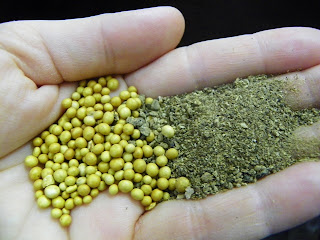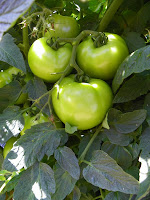 |
| Slow release fertilizers are better for sandy soils. These include synthetic, time release products (left) and organic fertilizers (right). |
To learn more about determining your plants' fertilizer needs and the types of fertilizers you can use, read the whole article posted on the Pender Extension website: http://pender.ces.ncsu.edu/2013/05/which-fertilizer-is-best/





